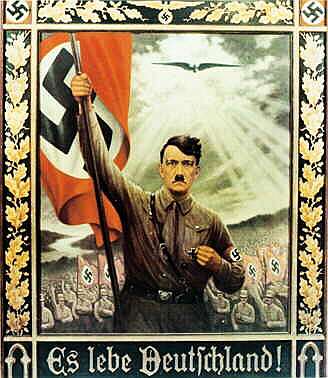 |
| Ourorobos: Greek symbol for "eternal recurrence" |
Perhaps Friederich Nietzsche´s most controversial idea is the idea of the Übermensch or Overman. The Overman is a new creature that he believes will result from the overcoming of humanity´s defects and its evolution into something greater. This new being is characterized by its "self-confident, self-reinforcing, self-governing, creative and commanding attitude" which has also come to reject all forms of morality and emerged even more powerful from the resulting nihilism.
One example of the overcompensations made by this philosophical giant is illustrated by his excessive admiration of the individual in opposition to society, the Dionysian over the Apollonian, which if implemented into society would result overtime in an opposite, but equally flawed reality. However, his awareness that he is not a Übermensch suggests that he knew that he was an imbalanced thinker as well and that someday his excesses would be overcome.
His adamant opposition to "other-worldliness" is also unbalanced. It is not unreasonable for him to challenge people´s obsession with Heaven, alternate realities and additional "other-worlds" as a reason not to live present life, the only certain one, to the fullest. If one is strict, there is no place in Nietzsche's philosophy for plans for a better world, which is in its essence an "other-world". However, he proves himself wrong with his prediction of the Overman, because it is a "detachment" from reality too. It is impossible to live only in reality without considering, to some degree, other possibilities.
Further evidence of Nietzsche´s imbalance is the Nazi´s use of his ideas to justify their actions and promote their ideology. Although it is true that Nazi Germany distorted and cherry-picked Nietzsche idea´s, his extremist positions, without any clarification that moderation is needed, facilitated their abuses and crimes.
 |
| Did Hitler believe he was the first Overman? |
Nietzsche´s philosophy can be seen as an intellectually violent reaction to the excesses and deficits brought by idealism, religion, reason, morality and his own psyche. Nietzsche was raised in a very religious environment which understandably led to his rebellion against religion. The culture he lived in had become too stiff in regards to all these elements he opposed, but he sometimes failed to recognize that the ideas he condemns once started off as reactions to problems of the time and later became an imbalanced force. Religion and morality were a reaction to the savageness of a prehistoric man. Rationality and order were used to overcome superstition and anarchy. Nietzsche failed to see that his ideas could suffer a similar fate too.
Wicks, Robert. "Friedrich Nietzsche." Stanford Encyclopedia of Philosophy. Summer 2011. Web. 11 Dec 2011. <http://plato.stanford.edu/archives/sum2011/entries/nietzsche>.